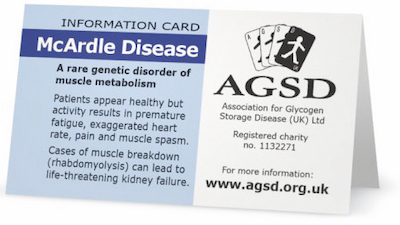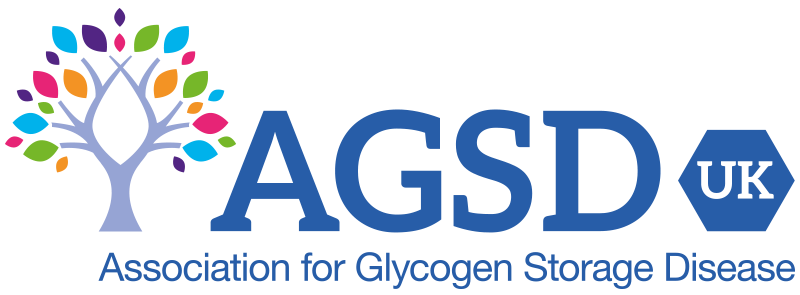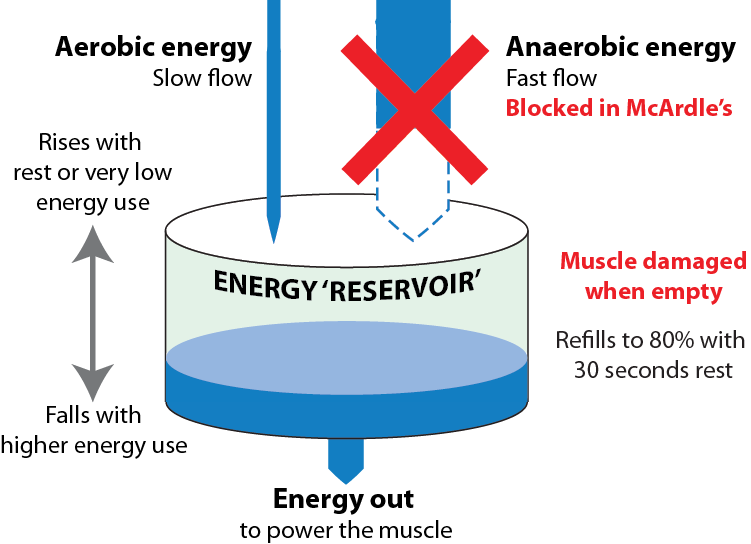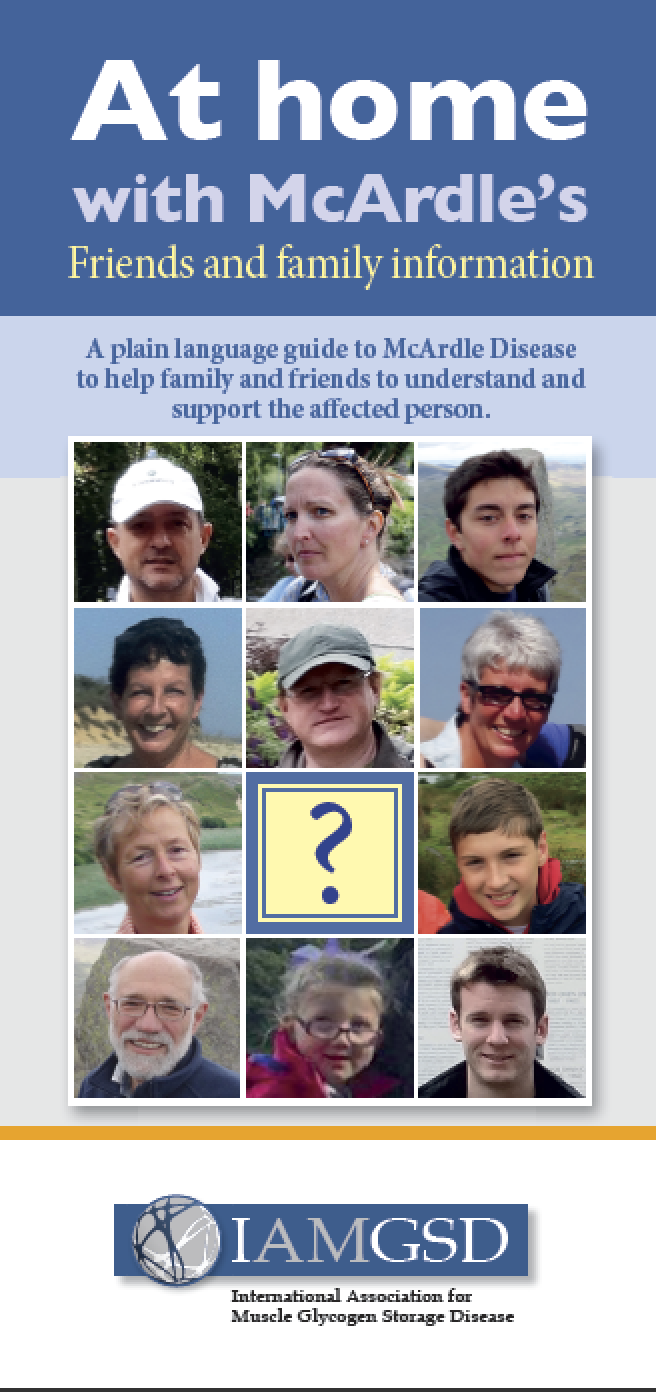It is usually a long and frustrating process to get diagnosed with this ultra rare disease, but once you are it opens the door to understanding and improvement.
There is much that we can do for ourselves
Managing your McArdle’s
Once you have your diagnosis there is much that you can do to look after yourself well. These notes will help you get started, and are backed up by further information on the IAMGSD web site and in the many publications produced by them and us.
Receive the resources
Once diagnosed and in touch with our McArdle’s coordinator you will receive all the resources you need to come to understand McArdle’s and learn how to manage it well. Key are the “101 Tips” book, the “Medical Overview” booklet and the information/emergency card.
Always carry the card
Have an information/emergency card in your wallet or purse and one in the car, so that when you need to seek help or explain McArdle’s you have that resource available to use. Even more importantly, if you make a mistake and get a fixed contracture you will have the reminder of the circumstances in which you need to seek medical attention. Ask the GSD5 coordinator for copies.

Carry with you for assistance with the unexpected.
Adapt your activities
Learning to make minor adaptations in your everyday life will enable you to avoid serious episodes. You will also learn how to limit the pain to no more than a minute at a time.
Be careful of risks
Be very wary of risks such as swimming in deep water and climbing to a height where a fall will really hurt. When you need to take a risk such as lifting something heavy or crossing a road, rest for 30 seconds beforehand to ensure your immediate energy “reservoir” is full.
Avoid pain medications
It is important to only take pain medications after activity has finished for the day, because they mask the signals from your muscles that you need in order to know when to slow down or pause for a rest. It is fine to take pain medication if you hurt yourself, as you will be stopping activity anyway. Also it is OK to take medication at the end of the day if you have “normal” muscle soreness from doing more than you are used to.
A great help in explaining to friends and family.
Explain to family and friends
If your family, friends and work colleagues know about your McArdle’s they can help you by protecting you from anaerobic activities, so explain your condition to them. You may feel a bit awkward at first, but you will soon be able to explain in just a few sentences and you won’t think anything of it.
The Information Card and the “101 Tips” book can help, and there are leaflets from IamGSD – “At home” for family and friends, “At work” for employers, and “At school” for teachers and school staff. Ask our GSD5 Coordinator for copies.



